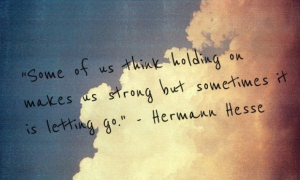 I’ve spent my whole life trying to “hack” entrepreneurship. I’ve tested different strategies to grow companies, but more importantly, I’ve experimented with many different ways to enjoy my career as an entrepreneur. I’ve always prioritized enjoying every step of the journey over the pot of gold at the end of the rainbow.
I’ve spent my whole life trying to “hack” entrepreneurship. I’ve tested different strategies to grow companies, but more importantly, I’ve experimented with many different ways to enjoy my career as an entrepreneur. I’ve always prioritized enjoying every step of the journey over the pot of gold at the end of the rainbow.
According to most philosophers, unhappiness is caused by the gap between our expectations and reality. So, what if we could let go of some of our expectations that are dragging us down? These are four things you can let go of to be a more successful and happier entrepreneur.
The Need to Be Right
We are taught that as leaders we’re supposed to have all the answers. But what if, instead of providing answers, we learned to ask great questions? If you haven’t read The Wisdom of Crowds, I highly recommend it. The premise of the book is that teams come up with better solutions than their leaders would on their own.
The first time I hired people, I wanted to have have the answers to everything because I was young and insecure, and wanted to prove I knew what I was doing. But then I grew up and realized I had nothing to prove, so I started asking my team for input. It turned out that 9 out of 10 times, my idea wasn’t the best one around.
I believe it’s very important that teams work together to find the best possible solutions to their problems, and it shouldn’t matter who gets credit for what. This approach encourages collaboration and increases the chances of success. Your job as a leader is to make sure you create a safe environment where everyone feels comfortable sharing their opinions and disagreeing with one another. Conflict is always good as long as people voice their disagreements respectfully.
The Need to Change Others
I bet there’s something about each of your employees that you don’t really like. I also promise you there’s something about you that they don’t like. We all have our quirks.
As leaders, I believe it’s important that we learn to pick our battles. There are some situations where we must demand change, but there are also situations where we can accept that others are different from us and be OK with that fact.
Next time you’re frustrated with someone on your team, ask yourself whether you can learn to live with how that person is, or if you need to do something about it.
The Need to Be Liked
When this blog started to become popular and I started to get invited to speak at marketing conferences, more and more people started to disagree with me on a number of different topics. This was very hard for me because I took it really personally.
This is what I learned: some people will agree with you and some people won’t. You need to be true to yourself and speak your mind. You can’t make everyone happy. It’s really that simple.
The Need to Worry About Things You Can’t Change
We’re addicted to worry because worry gives us a false sense of control. If we worry about things, we feel we’re doing something about them. But we aren’t.
Last year I had a really important meeting and the night before I was freaking out. I worried about saying something wrong and about my computer having problems during my presentation. Then I decided to make two lists: things I could control and things I couldn’t control. I did everything on the first list: I rehearsed my presentation, tested all of my equipment and made backup copies of my handouts. I also accepted that there was nothing I could do about the second list. Sometimes, shit happens and it’s just the way it is, whether we like it or not. I decided to let go. I realized that eliminating stress and sleeping nine solid hours was more productive than worrying and sleeping poorly.
The presentation went really well, but letting go of worry wasn’t easy at all. It felt like the wrong thing to do at the moment, as if something was going to blow up if I stopped worrying. I then acknowledged this feeling, told myself that there was no rational reason to worry and decided to consider letting go of my worry an experiment.
I really liked framing this as an experiment because when you do an experiment you don’t have any expectations. You just test something to see what happens. You can’t fail if you’re not biased towards a specific outcome. You run an experiment and observe what happens. Considering this a one-time experiment showed me that there were no negative consequences to letting go of my worry, and there were a lot of benefits. So, I kept running similar experiments and now I’m much better at letting go of worry when I’ve already done everything I have control over.
I hope you enjoyed the post. Have an awesome day!

